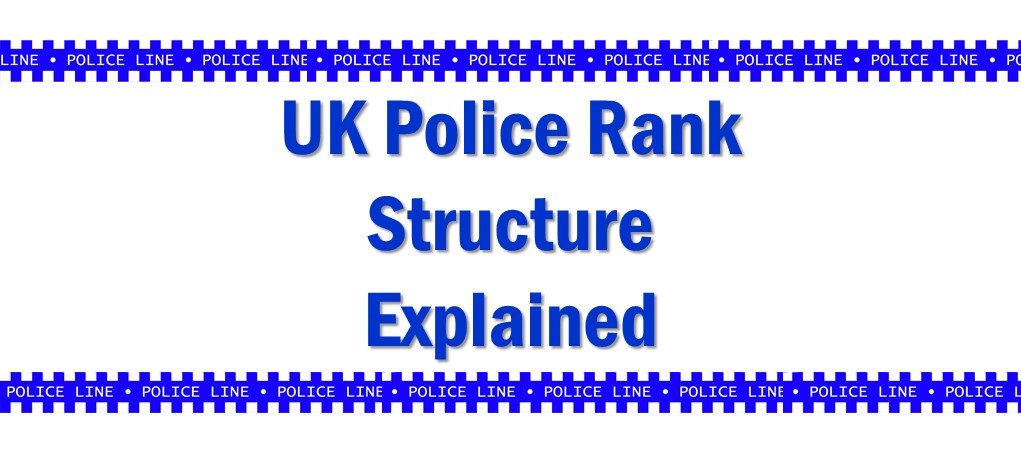All UK Police Forces use the same rank structure, except for the Metropolitan Police and the City of London Police. Due to their size, they have additional ranks. In this article, we will take you through the UK Police Ranks and the abbreviations that are used for each of these.
UK Police Ranks Explained
The forces within the UK (England, Wales, Scotland, and PSNI), all use the same rank structure for their hierarchy, this ranges from Constable to Chief Constable.
The City of London police has three different ranks, Commander, Assistant Commissioner, and Commissioner.
The Metropolitan Police, due to being the largest police force in the UK has additional ranks, Commander, Assistant Commissioner, Deputy Commissioner, and Commissioner.
The different ranks across the UK, the City of London, and Metropolitan Police can be seen in the table below in order from the lowest rank (constable) to the highest rank (Chief Constable or Commissioner);

If you want to know more about the salary that each of these UK police ranks attached, check out current police salaries here.
What Do The ‘P’ And The ‘D’ Mean In Front Of The Ranks?
The letter ‘P’ indicates a uniformed police officer, whereas, the letter ‘D’ indicates that the officer is a detective.
To make this easier for you to understand we have pulled together the below table listing the UK police ranks for the uniform and detective track as well as the abbreviations which can be attributed to each of the ranks.
There is no difference in rank between the two, i.e, as DS, does not outrank a PS and vice versa.

Find out more about what it means to be a detective here.
What Abbreviations Are Used For Each UK Police Rank?
As with most abbreviations, different ones can be used in different forces, so where there is more than one abbreviation, we have listed this for you.
If you are not sure whether an officer is a detective or not, the easiest way is whether the officer is wearing a uniform or not. If the officer is in smart (office) dress, they are likely a detective.
If they are in jeans and a tee-shirt, they are most likely in a role that requires them to ‘blend in’ with members of the public, such as an officer working in a pro-active unit, or somebody working in liaison with partner agencies, such as Probation.
In the Metropolitan Police, you may hear the term ‘skipper‘ being used. This is used to refer to an officer of the rank of Sergeant. You may also hear the term ‘guv‘ or ‘governor‘, used, this is the equivalent of using, ‘Boss’. It is used to reference somebody of the rank of Inspector or above and is an informal term.
Check out this article for more on how the police promotion process works.
You’ll have probably heard this being used if you have watched any police TV dramas such as Line of Duty or Life on Mars.
From the rank of Insp or above, you may hear people calling officer, ‘Boss‘ – gender-neutral, although quite colloquial and normally only used if you are already acquainted with the person, i.e you direct line manager or somebody you have worked closely with
Ma’am/ Sir – this is the more formal greeting to somebody of the rank of Inspector or above if in any doubt, this is the best term to use.
Want to improve your police lingo? Check out this article for more on police abbreviations.
Do Police Support Staff Have A Rank Structure?
Yes, within police support staff roles there will be a rank structure, this will be different for each department as different roles will require different levels of supervision.
There is not the same consistency in structure as with the police ranks.
Wrapping Up: Police Rank Structure Explained
There you have it, the UK police ranks for all of the forces in the UK. The first six ranks are consistent across all forces, it’s only the Metropolitan and City of London police that you have to remember the differences for. We’ve also taken you through the abbreviations for each of these ranks and how to address officers from each of these, everything you need to know to talk the lingo convincingly.





In the UK, why do the police not have the rank of corporal, as is common in military rankings?
It’s a good question, which I don’t know the answer to, but I’m going to ask some questions and try and find out.